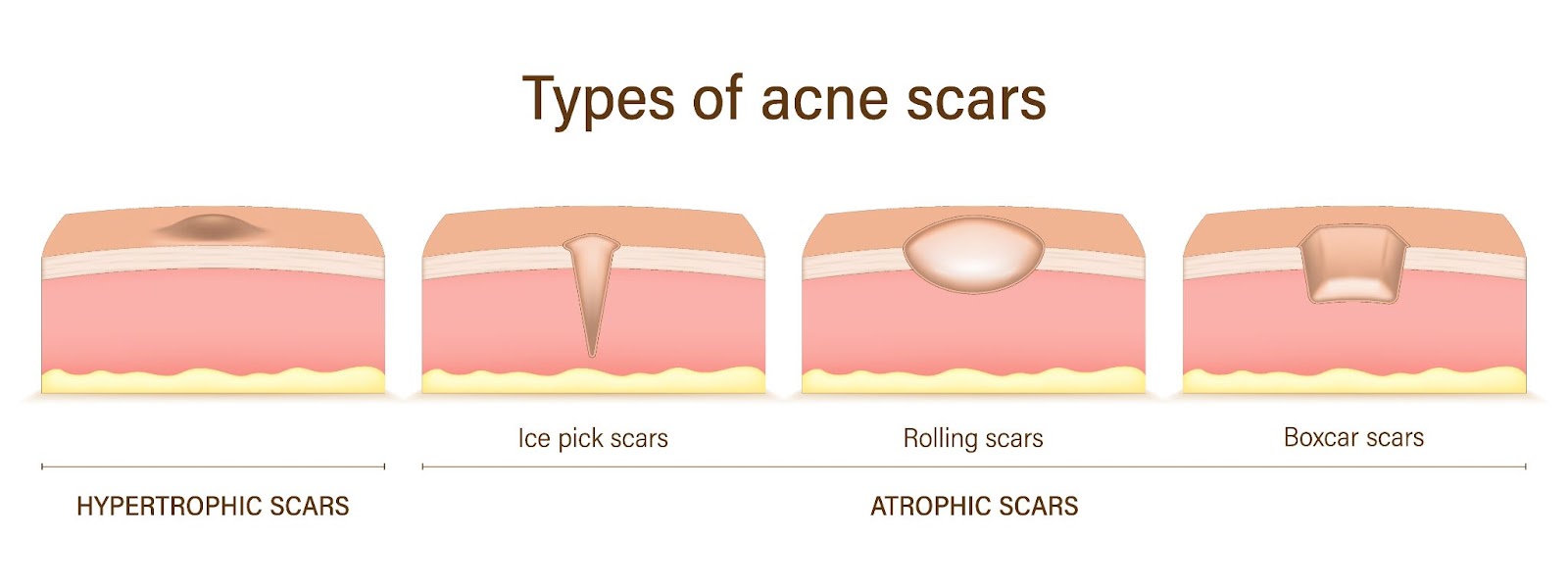At Livingstone Dermatology, we understand that your skin is a reflection of your health and well-being. We are committed to the latest advancements in dermatological science, and dedicated to providing you with quality care.

At some point in our lives, we may experience the frustration of pimples, otherwise known as acne. It generally starts in our teenage years, and may even follow us into adulthood. Sometimes, even though the breakouts are gone, we are left with a lasting reminder: acne scars.
While these scars are harmless, they can still take a toll on confidence, making it harder to achieve smooth, glowing skin. Thankfully, there are a variety of medical-grade dermatological treatments available to treat facial imperfections like acne scarring.

Acne scars are the aftermath of inflammation caused by acne blemishes. They form when acne damages the skin tissue, especially during deep breakouts or picking at our skin. As the inflammation subsides, your skin will heal itself, acne scars may be left behind in their place.
Depending on your body’s wound healing capabilities, the look of the scars may vary. The most observed acne scars are atrophic scars, which are formed due to loss of tissue in the area of scarring [2, 3].

There are a variety of treatment options to improve the look of acne scars, ranging from simple topical treatments to dermatological procedures.
Are all acne scars permanent?
Most acne scars naturally fade over time, however some can be permanent.
Can acne scars be treated at home?
Some over-the-counter products or home remedy treatments can lighten the scars and improve their appearance. However, some can also cause more harm than good, worsening scars or causing more breakouts, especially if you have sensitive skin.
Consulting a dermatologist can ensure that you’re getting the right acne scar treatment for your specific skin type and concerns.
How long does it take to see results from acne scar treatments?
Depending on the treatment, results may be visible within a week to several months. Procedures such as chemical peels, microneedling, or laser treatments rely on the body’s healing process, which means your skin will gradually improve over time as your skin heals and regenerates.
Do acne scars get worse with age?
Untreated scars may get worse with age. Natural loss of collagen occurs as we age, hence the appearance of atrophic acne scars may worsen over time. Furthermore, sun exposure may also lead to hyperpigmentation of these scars.
Are steroid injections effective for all acne scars?
Steroid injections are typically used for hypertrophic or keloid scars. It works by breaking the collagen strands that give these scars their raised appearance. Steroids can also be used to treat cystic acne.
How much do acne scar treatments cost?
The cost will depend on the type of treatment and how many sessions you require. In Singapore, laser treatments and chemical peels can start from SGD 200, microneedling procedures can start from SGD 300. Injectables vary from type of injectables and how many injections are required.
Our dermatologist will work with you to determine what treatment suits your needs and budget.
Whether you’re dealing with a specific skin concern or seeking to enhance your natural beauty, Livingstone Dermatology is here to guide you on your journey to healthy, radiant skin.
Schedule an appointment today and experience the Livingstone standard of care in a welcoming, professional environment.